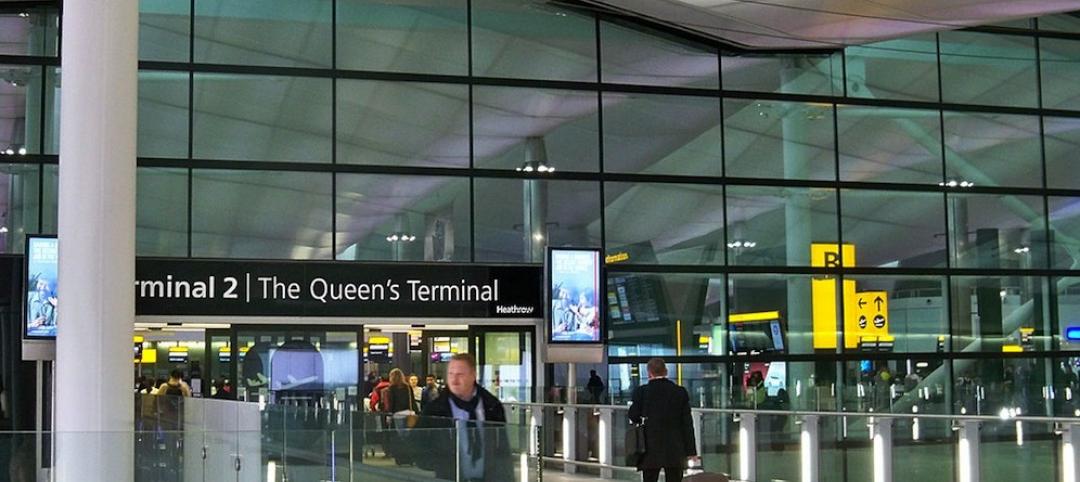The construction industry and real estate development could be hampered by the U.S. Congress’s failure to renew the Terrorism Risk Insurance Act (TRIA).
Insurance industry experts say without federal terrorism reinsurance in place for 2015, resulting canceled property/casualty insurance coverage and market chaos could be disruptive to the economy.
"A major terrorist attack occurring without a TRIA law on the books will be far more disruptive to the U.S. economy than one where TRIA is in place," saidInsurance Information Institute President Robert Hartwig. “Terrorism insurance policies are going to lapse in 2015, and insurers will be under no obligation to renew them, adversely impacting the construction, energy, and real estate industries, among others.”
Federal terrorism reinsurance had helped stabilize the market in the wake of the Sept. 11, 2011 terrorist attacks, and it had been renewed several times since. There was widespread bipartisan support for TRIA renewal, but retiring U.S. Sen. Tom Coburn, an Oklahoma Republican, held up passage. Coburn objected to a measure included in the bill that would have set up the National Association of Registered Agents and Brokers, an entity that would have potentially bypassed state regulators.
One positive sign: A.M. Best said it “has determined that no rating actions on insurers previously identified as over-reliant upon [TRIA] are necessary at this time.” The rating agency said it reviewed action plans from insurance carriers addressing what they would do if TRIA was not renewed and concluded that “sufficient mitigation initiatives were developed to avoid a material impact on a rating unit’s financial strength.”
(http://www.insurancejournal.com/news/national/2014/12/18/350561.htm)
Related Stories
| Dec 18, 2014
Boston testing mobile building permit tracking app
The app called Permit Finder could free city employees from having to respond to the 30 to 40 permit status-related calls they receive each week.
| Dec 18, 2014
Deal on 2015 budget slashes most federal construction spending
The $1.1 trillion funding bill for fiscal year 2015 approved by Congress makes deep cuts in some construction programs, but the General Services Administration suffered just a short haircut by comparison.
| Dec 11, 2014
Mayor backs reform of Pittsburgh inspection, permitting practices
The proposal, among other things, would impose a rental registration program and fee targeted at keeping better track of problem landlords.
| Dec 11, 2014
Los Angeles mayor proposes earthquake retrofit program
The ambitious program would focus on some apartment buildings built before 1978 and concrete buildings constructed before 1976.
| Dec 11, 2014
Outdated building code hampering recruitment of high-tech businesses in New York State
New York State’s building code is outdated and is hampering the recruitment of high-tech employers, according to a coalition of construction, fire safety, and insurance industry groups.
| Dec 11, 2014
Defense Authorization Act rejects BRAC for 2017
The House of Representatives has passed the $584.2 billion Defense Authorization Act.
| Dec 4, 2014
New airports raising green standards to new heights
Recent airport designs are bigger and much more efficient, based on a look at recent projects in Mexico City, London, and China.
| Dec 4, 2014
Rock Hill, S.C., puts moratorium on multifamily construction
City officials say the flurry of apartment construction over the past year has strained resources, including public services and infrastructure.
| Dec 4, 2014
Ontario contractors renew push for prompt payment legislation
A new coalition of Ontario contractors, construction associations, suppliers and trade unions will push for a revival of prompt payment legislation late this year.
| Dec 4, 2014
Roofing material manufacturers extend research project on sustainable roofing
A coalition of trade groups is sponsoring continued analysis of a reroofing project at the Onondaga County Correctional Facility in Jamesville, New York.














